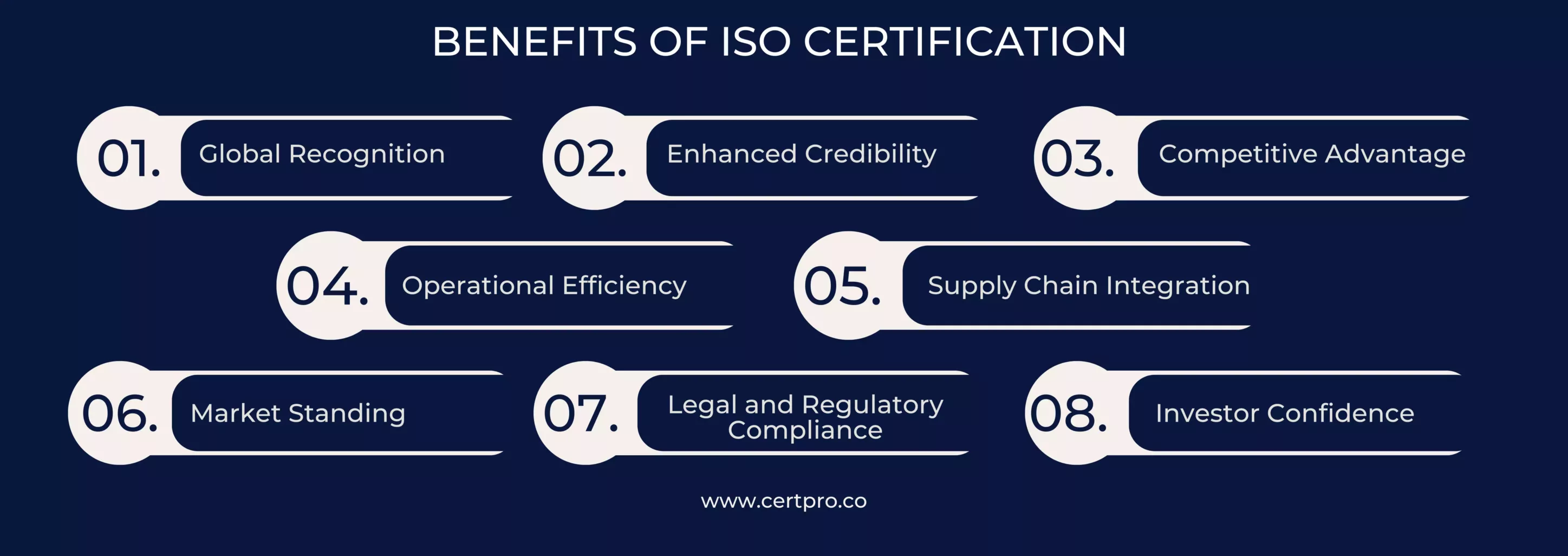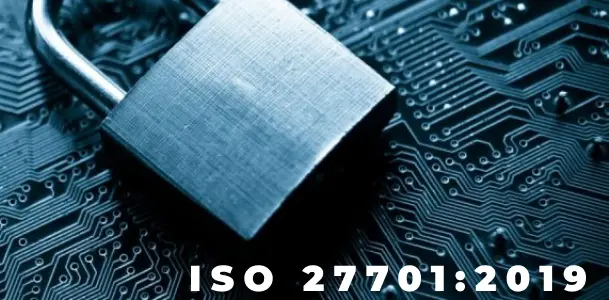GERMANY
ISO CERTIFICATION IN GERMANY
Germany, situated in Central Europe, is one of the largest countries on the continent, and ISO certification is a mandatory requirement in this nation. The country shares borders with nine countries and has a diverse landscape that includes the Alps, forests, and rivers. ISO certification in Germany is essential for ensuring compliance with international standards. The economic powerhouse of Europe, Germany boasts the largest economy in the European Union and is a key player in global trade. With a highly developed manufacturing sector, ISO certification holds significant importance in Germany. The country’s strategic location, advanced infrastructure, and skilled workforce contribute to its economic strength.
Germany’s transformation from an agrarian civilization to an industrialized one has been characterized by breakthroughs in efficiency, creativity, and technology. The automotive, machinery, and chemical sectors are all part of the manufacturing sector, which is crucial to the German economy. Maintaining the caliber and standards of goods and services depends on ISO certification. The nation’s emphasis on technical innovation is a clear indication of its dedication to research and development. In industries including engineering, medicine, and renewable energy, Germany is a leader. In Germany, maintaining the credibility of its R&D projects depends on ISO certification.
Germany’s education system is well-respected and emphasizes both higher education and vocational training. The country prioritizes the development of knowledge and skills, allocating a sizeable amount of its GDP to the field of education. This pledge emphasizes how crucial ISO certification is to guarantee that educational establishments adhere to global standards. Germany understands the value of ISO certification in upholding quality and standards across a range of industries due to its strong economy, technological prowess, and dedication to education.
WHY ISO CERTIFICATION IN GERMANY?
Obtaining ISO certification is essential for German businesses looking to maximize productivity, guarantee quality, and foster trust. Its ISO accreditation demonstrates the organization’s steadfast commitment to maintaining strict standards across a range of German sectors. Notably, the significance of ISO 9001 certification is evident, allowing German businesses to prioritize quality management and develop dependable, customer-focused goods and services.
The way that ISO 14001 handles environmental management is equally important; this is an important factor for a nation such as Germany, which is trying to achieve sustainable development in the midst of fast industrial growth. ISO certification—in particular, ISO 27001—becomes more and more important as Germany continues its digital transformation in terms of protecting sensitive data in the ever-changing digital environment.
These certificates are especially important in the broad German market since they boost client confidence and give companies a competitive advantage in the worldwide marketplace. An ISO certification enhances product dependability and reduces waste by indicating a dedication to strict standards. It also simplifies procedures, which promotes higher output and lower expenses.
There are various ISO certification bodies in Germany, and they all provide certification services, advice, and assessments to help companies go through the certification process. To put it simply, ISO certification in Germany gives companies the capacity to build strong frameworks, follow international best practices, and actively promote quality, sustainability, and security in order to actively support the development of their country.
UNDERSTANDING ISO CERTIFICATION IN GERMANY
Acquiring ISO 9001 certification in Germany signifies a company’s dedication to delivering reliable and superior products and services. The ISO 14001 standard, focused on sustainable growth and addressing environmental considerations, is gaining significance in tandem with Germany’s evolving industrial landscape. Safeguarding sensitive data aligns with ISO 27001, a crucial aspect of Germany’s digital transformation endeavors. The diverse German market reaps substantial benefits from ISO certification, enhancing customer trust and enabling companies to compete on the international stage. Beyond showcasing adherence to stringent standards, ISO certification enhances product reliability by streamlining processes, reducing waste, and eliminating inefficiencies.
ISO certification enables companies in Germany to establish robust frameworks that align with international best practices. Businesses that put quality, sustainability, and security first not only profit themselves but also help Germany’s reputation abroad. ISO certification officially recognizes a company’s management system, practices, products, or services as meeting specific criteria set by the International Organization for Standardization (ISO).
Related Links
ISO 27001 in Germany
HIPAA in Germany
GDPR in Germany
PCI-DSS in Germany
SOC in Germany
VAPT in Germany
ISO 20000 in Germany
ISO 22301 in Germany
ISO 21001 in Germany
ISO 41001 in Germany
ISO 50001 in Germany
ISO 29001 in Germany
ISO 14001 in Germany
ISO 45001 in Germany
ROHS in Germany
TQM in Germany
ISO 22000 in Germany
FSSC 22000 in Germany
HACCP in Germany
HALAL in Germany
GMP in Germany
KOSHER in Germany
ISO 17025 in Germany
ISO 13485 in Germany
CE Mark in Germany
GLP in Germany
GDP in Germany
The ISO, a well-known and autonomous organization with global recognition, creates and distributes standards to guarantee effectiveness, safety, and quality in a range of sectors. The extensive use of ISO standards gives German companies more reputation and makes it simpler for them to enter foreign markets. Businesses with ISO certifications frequently obtain a competitive advantage by demonstrating their dedication to quality and ongoing development. Germany has a strong focus on environmental management and sustainability, which is consistent with ISO 14001 certification. Customer requirements are often highlighted in ISO standards, which improve customer satisfaction and retention. ISO certification is crucial for German suppliers involved in global supply networks. Continuous improvement is a key component of ISO certification, helping German businesses stay competitive and optimize their operations. In the end, ISO certification enhances a company’s standing by proving compliance with global quality standards, which builds trust among customers and partners.

THE ESSENTIAL STEPS OF THE ISO CERTIFICATION PROCESS IN GERMANY INCLUDE THE FOLLOWING:
Preparation and Awareness: Start by making sure you fully understand the particular ISO standard that applies to your sector and company objectives. Learn about the benefits, requirements, and steps that go into putting the standard into practice.
Planning: Develop a comprehensive strategy detailing the necessary actions to align your processes with the ISO standard. Construct an implementation schedule and assign responsibilities appropriately to ensure effective execution.
Documentation: Generate or revise essential documentation, encompassing policies, procedures, work instructions, and records, to ensure they align with the stipulations of the ISO standard.
Implementation: Incorporate your organization’s documented processes and procedures seamlessly across the entire structure. To ensure a successful implementation, closely monitor proceedings and make any necessary adjustments as needed.
Internal Audit: Perform an internal audit to identify any non-conformities and evaluate the effectiveness of the implemented processes. Address these issues and make the necessary adjustments to ensure compliance and efficiency.
Management Review: Evaluate the progress, effectiveness, and relevance of the ISO management system implementation through a management review. Ascertain whether any changes or improvements are necessary.
Certification Body Selection: Choose a reputable certifying body to conduct the external assessment. The certifying body will thoroughly review your policies, practices, and implementation to assess your readiness for certification.
Stage 1 Audit (Document Review): The certification organization’s initial assessment of your documentation and procedures verifies their compliance with the ISO standards.
Stage 2 Audit (On-Site Audit): To confirm the implementation of your ISO management system and evaluate the alignment of your processes with standard standards, the certification authority conducts an on-site audit.
Certification Decision: The certification body determines whether to grant certification based on the audit findings. If your business adheres to the standards outlined in the standard, it will be presented with an ISO certificate.
Surveillance Audits: To ensure ongoing compliance with the ISO standard, the certifying body conducts regular surveillance audits. Typically, these audits occur annually.
Maintaining strict adherence to the certification organization’s criteria and fostering close communication with them are crucial throughout the entire procedure.
POPULAR ISO STANDARDS IN GERMANY
Germany is a prominent country in Western Europe with a variety of scenery, such as plains, beaches, mountains, rivers, and the North Sea. Germany thinks that industry-wide adoption of different ISO standards is crucial to improving productivity, security, and quality. Essential to Germany’s dedication to excellence is ISO 9001:2015, which emphasizes quality management systems for reliable and consistent goods and services.
With regard to environmental issues, ISO 14001:2015 is essential to Germany’s sustainable development in the face of continuous industrial growth. ISO 27001:2013 is an essential tool for data security in the digital age, supporting security activities and safeguarding sensitive data in Germany’s ongoing digital transformation. ISO 26262 facilitates Germany’s technological advancements and safety standards by ensuring functional safety in the automotive sector.
Germany places a high priority on occupational health and safety, as demonstrated by ISO 45001:2018. Additionally, ISO 22000:2018 ensures food safety in the sector, aligning with Germany’s commitment to consumer protection. With its emphasis on energy management, ISO 50001:2018 highlights Germany’s commitment to sustainable energy policies. When taken as a whole, these ISO standards promote industry norms, correspond with Germany’s development objectives, and provide German businesses with an international reputation, reflecting their critical role in the Canadian environment. These standards support Germany’s technological developments, regulatory compliance, and improvement of quality and safety.
BENEFITS OF ISO CERTIFICATION IN GERMANY
As a guarantee that products and services meet worldwide quality standards, ISO certification gives businesses a competitive edge and increases customer satisfaction in Germany. Furthermore, ISO certification ensures that processes are implemented accurately, which is crucial in minimizing business failure. German firms can benefit greatly from the certification process, which promotes growth, credibility, and operational excellence.
First and foremost, ISO certification improves a company’s standing in the marketplace by proving that it adheres to international standards, which in turn fosters customer loyalty and retention and fosters client trust. This increased credibility helps the business maintain a strong position in the industry.
Germany may more easily access international markets thanks to ISO certification, which lowers trade barriers, creates a recognized quality standard, and makes it easier to engage in international commerce. This is especially advantageous for German companies looking to expand internationally and investigate commercial prospects outside. Furthermore, ISO-certified German businesses acquire a competitive advantage in the marketplace by setting themselves apart from rivals and drawing in prospective customers and business partners with their dedication to effectiveness, excellence, and ongoing development.
- Global Recognition: The worldwide recognition of ISO certification creates opportunities for German businesses, allowing them to engage in international trade and expand their market presence abroad. This acknowledgment provides German companies with a substantial competitive edge, enabling them to conduct business credibly and trustworthily in foreign markets.
- Enhanced Credibility: It enhances credibility and trust among clients, partners, and investors both domestically and internationally.
- Competitive Advantage: Companies with ISO certification outshine their competitors by showcasing their dedication to excellence and quality.
- Operational Efficiency: Enhancements in processes contribute to an overall improvement in operational effectiveness.
- Supply Chain Integration: ISO accreditation is essential for numerous international supply chains, providing opportunities to participate in collaborations with partners abroad.
- Market Standing: Achieving ISO certification enhances a company’s market reputation, attracts more clients, and expands business opportunities.
- Legal and Regulatory Compliance: ISO certification facilitates adherence to both domestic and international regulations.
- Investor Confidence: Investor confidence is increased when one demonstrates a commitment to best practices.
ISO certification in Germany enables businesses to excel in a competitive environment, instill trust in international markets, uphold ethical and sustainable business practices, and consistently enhance operations for long-term success.

ISO CERTIFICATION BODIES IN GERMANY
The German Accreditation Body (DAkkS) serves as the national accrediting agency for certification bodies in Germany. Numerous certifying bodies in Germany are authorized to issue ISO certification under the jurisdiction of DAkkS. These authorized entities conduct audits of businesses to verify adherence to various ISO standards. Let’s explore some of the prominent ISO certification bodies in Germany:
Dakks: Dakks, or Deutsche Akkreditierungsstelle GmbH, serves as the German national accreditation body. Functioning independently, Dakks accredits conformity assessment bodies such as laboratories, certification bodies, inspection bodies, and calibration services. Accreditation by Dakks signifies compliance with specific criteria and international standards, ensuring the reliability of services provided. Dakks plays a vital role in promoting quality and safety across industries by officially recognizing the competence of entities performing conformity assessments. Seeking Dakks accreditation enhances credibility and demonstrates a commitment to quality, both domestically and internationally.
BQSR: BQSR is an internationally acknowledged ISO certification body that assesses and certifies businesses across various industries, including construction, manufacturing, software, food, and services. Conducting thorough audits worldwide, BQSR employs a professional team of auditors and technical experts to ensure alignment with established criteria, such as ISO standards. It is advisable to refer to official sources, engage directly with BQSR, or consult accreditation bodies for the latest information. For organizations pursuing certification, a crucial aspect is understanding the certifying body’s specialization and the scope of its accreditation.
Factocert: Factocert is a company that specializes in providing certification and consultation services. They assist organizations in achieving various certifications, such as ISO (International Organization for Standardization) certifications, ensuring that businesses comply with international standards in areas like quality management, information security, environmental management, and more. Factocert offers expertise in guiding companies through the certification process, conducting audits, and helping them meet the necessary requirements for accreditation. If you have specific questions or if there’s a particular aspect of Factocert’s services you’d like more information on, please provide additional details.
GERMANCERT: GERMANCERT has established itself as a prominent participant, especially in light of the growing demand in Germany. The organization is proud to have a group of very talented auditors and technical specialists with a wealth of global expertise. These GERMANCERT auditors have demonstrated their extensive experience by demonstrating their proficiency on a global basis, especially in challenging areas like the Middle East. This nuanced comprehension of local customs and mentalities stands as a distinct advantage, positioning GERMANCERT as a provider of effective certification services.
Advisera: Advisera is a company that specializes in providing compliance solutions and online training for various international standards and regulations. They offer expertise in areas such as ISO standards, GDPR (General Data Protection Regulation), ITIL (Information Technology Infrastructure Library), and more. Advisera’s services include documentation templates, software tools, and online courses to assist organizations in achieving and maintaining compliance with industry-specific standards and regulations. If you have specific questions or if there’s a particular aspect of Advisera’s services you’d like more information on, please provide additional details.
INDUSTRIES THAT BENEFIT FROM ISO CERTIFICATION IN GERMANY
Considering the multiple benefits that ISO certification offers to different industries in Germany, many businesses there understand how important it is to their success. These certifications represent a strong dedication to sustainability, quality, and security and go beyond simple status symbols. The manufacturing industry benefits from ISO 9001 accreditation as it raises customer satisfaction and gives businesses a competitive edge by improving product quality and operational efficiency. ISO 27001 accreditation is crucial for Germany’s IT business since it strengthens risk management and data security in the face of the industry’s technological improvements. Regarding automobiles, ISO/TS 16949 guarantees the longevity and safety of vehicles and supports Germany’s position as a world leader in the production of high-end automobiles. These certifications help enterprises individually, but they also promote sustainable practices and the development of environmentally friendly building technologies. Companies that wish to successfully traverse the certification process and uphold data security, privacy, and healthcare requirements can do so by consulting with ISO experts in Germany. Certifications like ISO 27001 certification in Germany, SOC 2 certification in Germany, GDPR certification in Germany, HIPAA certification in Germany, and PIPEDA are noteworthy since they demonstrate a company’s dedication to both corporate success and social responsibility in addition to environmental sustainability. The engagement of ISO consultants in Germany highlights the strategic advice that businesses require to effectively traverse the certification terrain.
FAQ
What is ISO certification, and why is it important in Germany?
In Germany, ISO certification is a validation of adherence to international standards, playing a crucial role in ensuring operational efficiency, quality assurance, and trust in the competitive global market.
How can a company in Germany obtain ISO certification?
To obtain ISO certification in Germany, a company must undergo processes including certification preparation, application of ISO standards, internal audits, choosing a certification body, and concluding external audits.
What are the benefits of ISO certification in Germany?
ISO certification in Germany offers benefits such as increased reputation, better market access, operational efficiency, customer trust, regulatory compliance, and alignment with sustainable practices.
Why is ISO 9001 certification significant for German organizations?
ISO 9001 certification in Germany signifies a commitment to quality management, enabling companies to develop reliable, customer-focused goods and services.
What are the essential steps in the ISO certification process in Germany?
The ISO certification process in Germany involves preparation, planning, documentation, implementation, internal audit, management review, certification body selection, document review, on-site audit, certification decision, and surveillance audits.
AI SECURITY: UNDERSTANDING THREATS AND COMPLIANCE SOLUTIONS
Artificial Intelligence continues to grow and become more relevant in workplaces. Customers widely use it to handle and market products. Organizations are desperately using AI for their businesses and ensuring that the AI systems comply with the new rules and...
FINDING THE RIGHT AUDITOR: THE ULTIMATE CHECKLIST
Selecting an auditor to implement industry-specific rules and regulations is vital. The choice can influence the company’s growth and financial health. Therefore, choosing the right auditor offers valuable insights and ensures compliance and economic stability. You...
HOW DOES THE NIST CYBERSECURITY FRAMEWORK FUNCTION, AND WHY IS IT IMPORTANT?
Emerging cyber threats make cybersecurity an essential consideration for organizations handling and managing data. In this regard, the NIST cybersecurity framework applies to improving your cybersecurity program. It is a set of guidelines that helps improve your...












